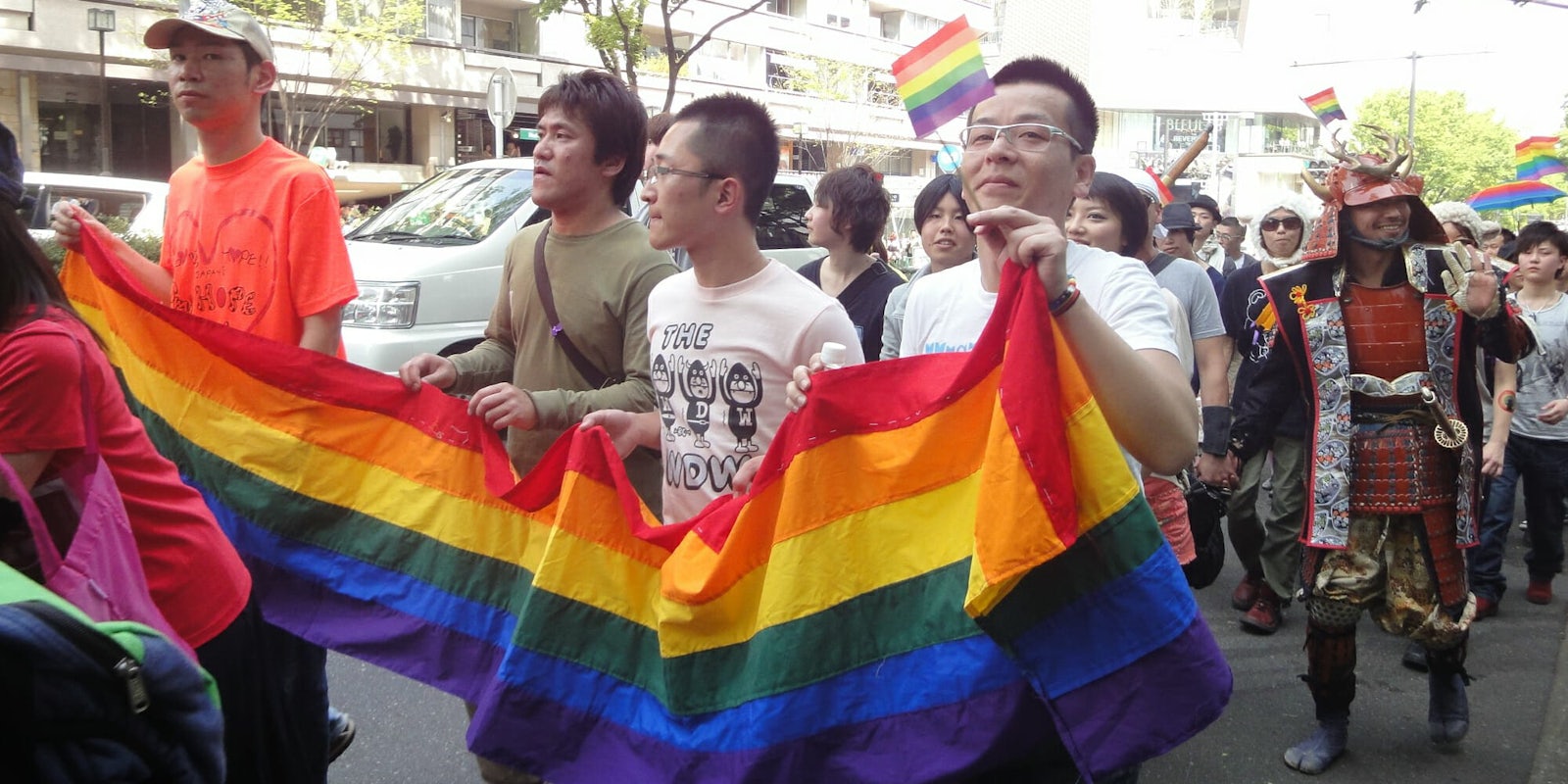If you’ve ever studied Japanese, then you’ve heard of Kojien. It’s one of Japan’s top dictionaries and often cited as the most authoritative resource on the Japanese language. But Japanese LGBTQ activists are raising eyebrows with Kojien’s new definition for queer people, which comes off as both homophobic and transphobic.
In Kojien’s latest edition, the dictionary added the term “LGBT” for Japanese users. But instead of separating the letters or commenting on gender and sexual identity, Kojien defined the term as pertaining to “people whose sexual orientations are different from the majority,” according to a translation provided by the Japan Times.
Of course, there’s myriad problems with how Kojien defines LGBTQ people. For one, it portrays queer and transgender Japanese citizens as “different from the majority,” suggesting that queer sexual experiences are not “normal” experiences. It also lumps all four letters together, ignoring the “T” in “LGBT,” which stands for “transgender” and has nothing to do with sexual orientation but with a person’s gender identity not aligning with the sex they were assigned at birth. Then, of course, there’s no mention of the individual experiences between the “L,” “G”, “B,” and “T.” It’s just a catch-all used to describe all LGBTQ people.
Suffice to say, the definition has many Japanese LGBTQ activists upset. Japanese transgender activist Mameta Endo turned to the internet in response, arguing that there’s still “a long way to go” before people properly understand LGBTQ experiences.
“This occurrence mirrors the current situation in which LGBT people are not understood correctly, even though use of the word has spread,” Endo wrote online, the Asahi Shimbun reports.
But Kojien’s definition may not stay for long. Publisher Iwanami Shoten has recognized the error, acknowledging that it was an “insufficient” definition of LGBTQ people.
“We are aware of online comments saying the definition is wrong,” Shoten said to the Japanese Times in an official statement. “We are currently discussing a way to deal with the issue, such as making a correction.”
As Kojien is considered Japan’s most authoritative dictionary, political discussions regularly follow its definitions for sensitive terms. Tomorrow Girl’s Troop, a feminist art collective in Japan, has pushed Kojien to update the dictionary’s definition of feminism, which does not mention gender equality. And in the wake of the 2011 Fukushima Daiichi disaster, Kojien has also revised its dictionary with new terms based on nuclear energy and emergencies.


